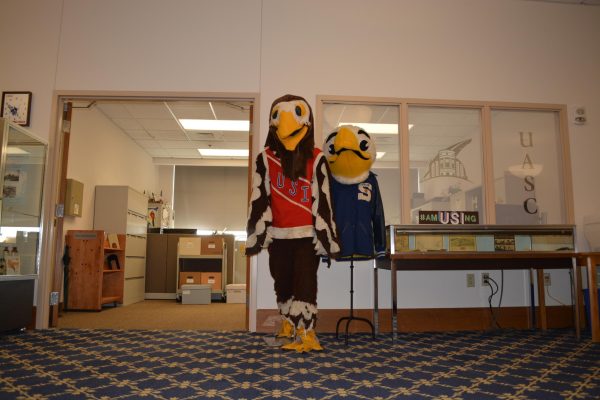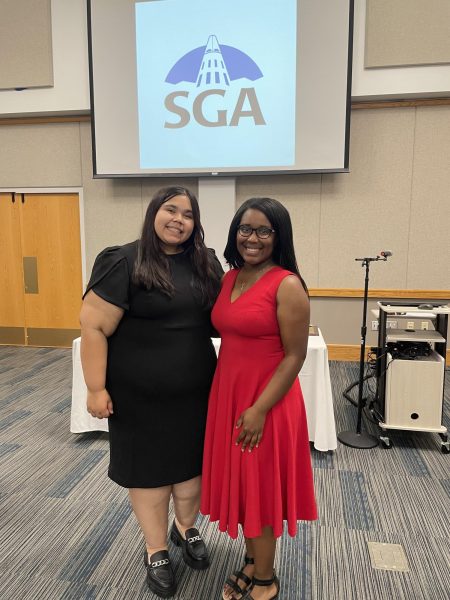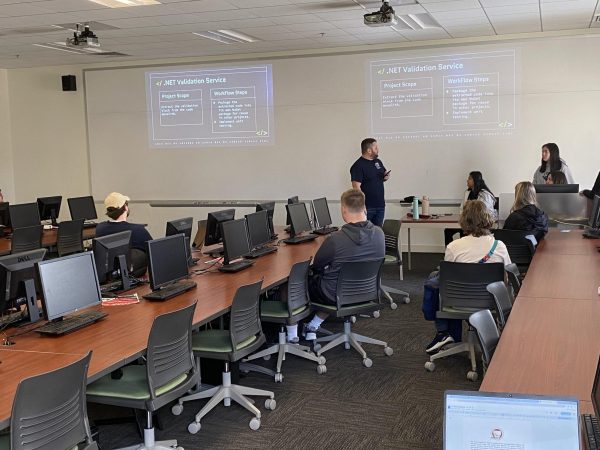Disability education “an opportunity to learn”
October 29, 2019
Whenever people hear the word “diversity” they typically think of race, gender, sexual orientation, or religion, however, disabilities are also considered part of diversity.
A recent study has found that people with disabilities are the fastest-growing minority in America. Disabilities can range from being blind or deaf to mental health issues.
“Twenty percent of the population, approximately, has some kind of disability in this country and they are the largest minority,” American with Disabilities Act Coordinator Doug Goeppner said approximately 20% of the country has some kind of disability.
The ADA considers disability as any kind of mental or physical impairment that limits one or more major life activities. This can include amputees, hearing impairment, PTSD, depression, anxiety and many other types of disabilities.
Goeppner has been the ADA coordinator at USI for 13 years. The duties the ADA coordinator were originally assigned to the Executive Director of Human Resources, however, the university decided to have a stand-alone coordinator because the responsibilities grew.
When Goeppner first became the ADA coordinator, he never thought of educating students about disabilities. Public speaking was not something that appealed to him. As he spent more time at USI, more and more people kept asking him to speak at events or for classes.
Goeppner said that he probably didn’t do a good job the first couple of times but people kept asking and he began looking forward to it.
There are many reasons why people should be educated on disabilities.
“First of all, from a moral standpoint, it’s the right thing to do,” Goeppner said. “It’s part of the human experience, how can you not be aware of disabilities?”
It’s also important to be informed because it can reduce discrimination. If someone is more educated on a topic, they’re less likely to discriminate. This is really important for managers and business owners.
There have been many cases where businesses have been sued for discrimination. For example, a Wendy’s in Texas was sued back in 2012 because they didn’t hire a man who had impaired hearing. It was reported that the employer told the man, “there is really no place for someone we cannot communicate with.”
Another example is when Home Depot got sued for $100,000 because they fired a woman after refusing to give the woman an emergency break for her irritable bowel syndrome.
Goeppner said he enjoys educating people about disabilities and why it’s important. His favorite part of being the ADA Coordinator is spreading the word. He has an hour and a half commute to USI and said he wouldn’t make the drive if he didn’t love his job.
“I just say, be aware of them, take opportunities to learn about people with disabilities, and don’t be afraid,” he said.
















